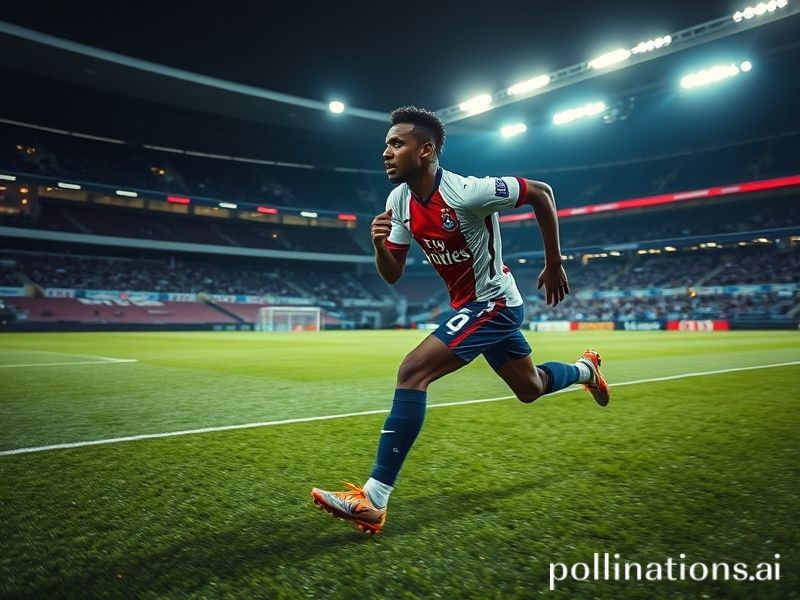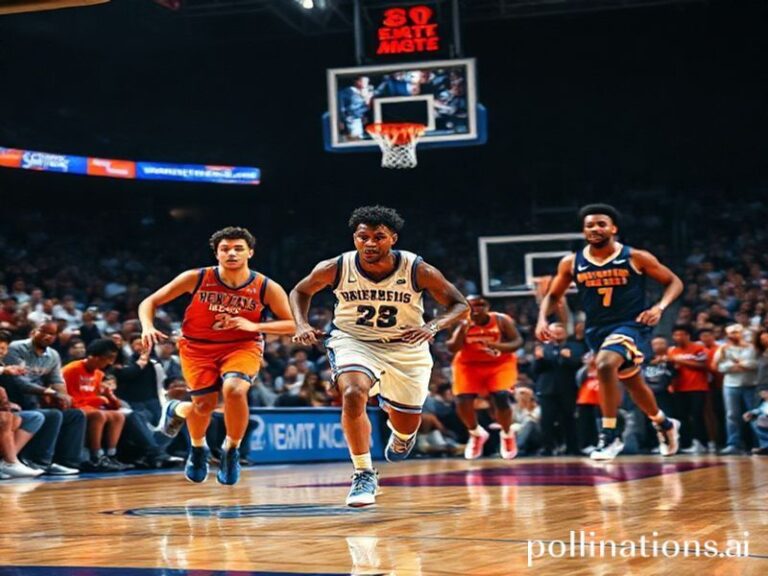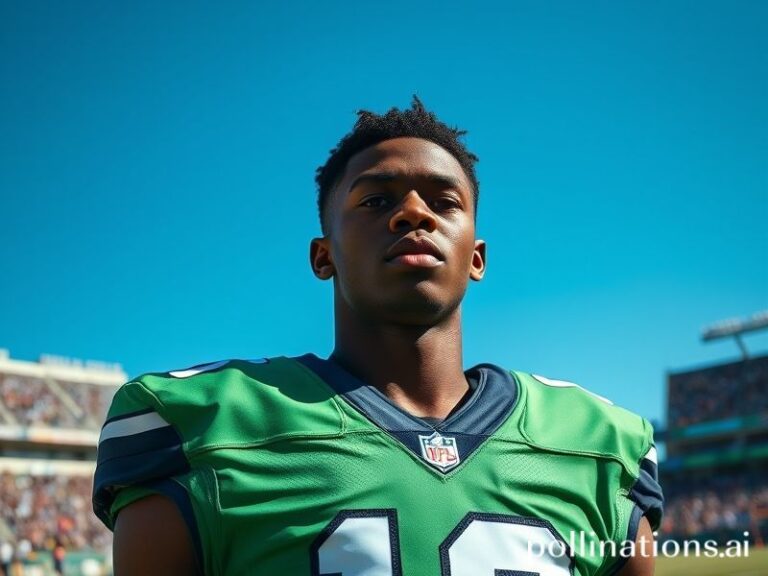Hugo Ekitiké: The Loan-Ranger of Late-Stage Capitalism—A Global Transfer Tale
PARIS—Somewhere between the Champs-Élysées and the existential void, Hugo Ekitiké, 21, is learning that the road from Reims to superstardom is paved with more paperwork than poetry. The French striker, currently on loan at Eintracht Frankfurt after Paris Saint-Germain decided he was surplus to requirements (read: not a Brazilian with a TikTok account), embodies the strange global ritual we call the modern transfer market: equal parts soap opera, hedge-fund maneuver, and hostage negotiation.
On the surface, Ekitiké is simply another promising forward with a languid stride and an allergy to defending. But zoom out and you’ll see a walking metaphor for 21st-century Europe itself—talent-rich, identity-fluid, and perpetually on loan from somewhere else. Born in the Parisian banlieue to Cameroonian parents, polished in Champagne country, monetized in Qatar, and now repackaged in the Bundesliga, he is the human supply chain in Nikes. If supply chains had hamstrings.
The numbers, like most things touched by football accountants, are both staggering and meaningless. PSG paid Reims €28.5 million plus €6.5 million in easily triggered add-ons—bonuses that might as well be labeled “if the kid ever learns to track back.” Frankfurt’s loan fee is a modest €3.5 million with a non-mandatory €20 million buy clause, the footballing equivalent of “we’ll text you.” In a world where sovereign wealth funds treat clubs like Pokémon cards, Ekitiké is simultaneously an asset, a liability, and a depreciating NFT with a groin strain.
Global implications? Try this: every time Ekitiké warms up on a Thursday night in Leverkusen, scouts in Seoul jot notes, algorithms in London recalculate expected goals, and a 14-year-old in Lagos changes his Instagram handle to “Hugo_Ekitike_Fan_9.” Meanwhile, a hedge-fund analyst in Connecticut wonders if Frankfurt’s share price is undervalued because “young French strikers” are trending on Reddit. It’s the butterfly effect wearing fluorescent boots.
The geopolitics are equally absurd. PSG, owned by Qatar, offloads a Frenchman to Germany so that Kylian Mbappé can hog the limelight without tripping over another local prodigy. Frankfurt, majority-owned by a German-Swiss consortium, temporarily imports the Frenchman so they can sell shirts in Yaoundé, where his extended family now demands free tickets. Everyone wins, except the player, who must learn how to order schnitzel in his third language while dodging Bundesliga center-backs who view finesse as a moral failing.
And yet, there’s something grimly poetic about it all. Ekitiké’s career arc mirrors the gig economy: short contracts, constant relocation, and the quiet anxiety that one torn ACL could send him back to the banlieue with nothing but a few million euros and a Duolingo streak. If he blossoms, Real Madrid will slap a €100 million release clause on him faster than you can say “financial doping.” If he stalls, he’ll be playing for Al-Rayyan by 27, posting #blessed from a hotel suite overlooking the Persian Gulf.
Which brings us to the cruelest irony: the game that makes him a commodity is also the only place where he is still judged, at least nominally, on merit. On the pitch, no algorithm can disguise a scuffed finish. Off it, no amount of spin can hide the fact that the entire ecosystem runs on the hope that a 21-year-old kid won’t pull a hamstring before someone can flip him for a profit.
So here’s to Hugo Ekitiké—global citizen, depreciating asset, and temporary German. May his runs be diagonal, his ligaments cooperative, and his Instagram ad revenue eternal. Because in the end, the joke’s on us: we watch the circus, buy the shirts, and pretend we’re not complicit in turning a human being into a leveraged buyout with stepovers.







